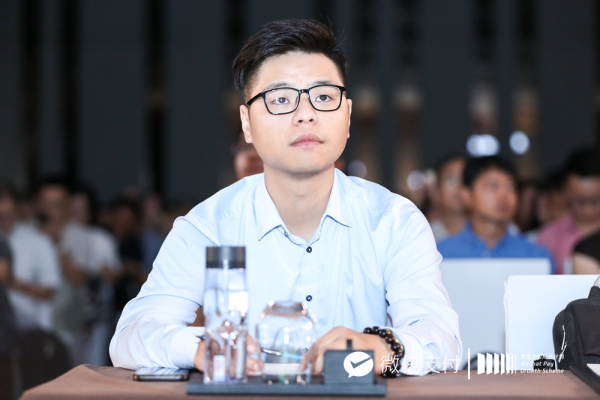
李开复:警惕人工智能革命演变成科技“军备竞赛”
原标题:李开复: 警惕人工智能革命演变成科技“军备竞赛”| 金融时报专栏
本周,在中国乌镇举办的第四届世界互联网大会上,人工智能是讨论的热点话题之一。
如今,中国已迅速崛起为人工智能领域的全球领袖,中美将共同引领人工智能革命。同时,人工智能和自动化技术将在未来的10到15年之内替代现今50%的工作。
“在一个绝大部分的电子营销、客服、出纳、会计和金融分析都将被自动化的世界里,我们如何保证受此影响的人们不会失业,也不会因此而感到抑郁、无能?我们如何应对越来越不可逾越的贫富鸿沟?”
12月3日,李开复在英国《金融时报》撰文称,中美两国需要肩负责任感,积极解决棘手难题,“我们承受不起任由人工智能革命演变成一场科技“军备竞赛”的代价。”
以下是文章全文,我们也把英文原文附到了后面。

中国广州,机械手正在作业。人工智能颠覆了由来已久的信仰,即工作和工作收入赋予了我们生活的意义。
本周,来自全球各地的行业领袖聚集在中国乌镇,参加世界互联网大会。加强人工智能领域的全球合作,以及应对人工智能给社会带来的挑战,是目前两项重要的应时之需。
第一,因兼具多种结构性优势,中国已迅速崛起为人工智能领域的全球领袖。
这些优势包括:庞大的高价值数据库(人工智能应用的关键);实力渐长的企业和研究所输出的大量顶尖人工智能科学家;趋于完善且极度活跃的科技创新环境;以及通过国家扶持和强大资金后盾来推动人工智能发展的切实意愿。
我预期中美将共同引领人工智能革命——这件事本身就是一个具有相当地缘政治重要性的新发展,在此过程中也需要其它国际参与者以开放的心态加入互动。
科技的迅速发展将令人工智能在执行分析和量化任务时的表现超过人类。就DeepMind公司所研发的AlphaGo Zero而言,其成功只是一个开始。科技(深度学习和强化学习等)使之成为世界顶尖的围棋选手,而今在金融服务、客服、广告宣传优化以及股票选择等方面,类似科技的表现同样远超专业人士。即使是在高级任务的处理上,人工智能也优于人类,如产品装配、人脸和语音识别、无人机驾驶、乃至高速公路上的无人驾驶。
第二,这些精准的人工智能工具在效率方面将远高于人类。
这意味着在不远的将来,大量的工作将不可避免地被替代。我相信人工智能和自动化技术将在未来的10到15年之内替代现今50%的工作。
这对我们与科技之间的关系影响深远,而人类在培养美德过程中所构建的工作伦理将随之成为牺牲品。人工智能颠覆了一个由来已久的信仰,即工作和我们使用工作收入的方式赋予了我们生活的意义。
在一个绝大部分的电子营销、客服、出纳、会计和金融分析都将被自动化的世界里,我们如何保证受此影响的人们不会失业,也不会因此而感到抑郁、无能?我们如何应对越来越不可逾越的贫富鸿沟?
如今的危险在于,中国作家郝景芳在其科幻短篇小说《北京折叠》中构想的反乌托邦未来或将成为现实。在郝女士的故事中,中国被划分成上、中、下三个阶层。这种世界变为现实的可能性应当迫使决策者们对人工智能可能带来的后果给予认真的考量,并针对其带来的挑战寻求解决方案。
我们面临着一系列难题。如何重新思考在工作中寻找尊严、成为社会中有贡献的一员?如何重构教育系统,让后代适应人工智能的需求?如何实现财富的转移,为落后于快速科技变化的人们提供机会?在人工智能执行大量其他任务的同时,如何提高仍需由人类完成的服务和看护类工作的地位?
问题过于棘手,挑战也过于广泛,因此我们承受不起任由人工智能革命演变成一场科技军备竞赛的代价。中美必须积极解决这些问题,而本周的乌镇互联网大会可以成为一个起点。

英文全文:
China and America must shape the high-tech future together
We need a global response to the huge job displacement AI is likely to cause.

Robotic arms at work in Guangzhou, China. Artificial intelligence undermines the age-old belief that it is work and its proceeds that give our lives meaning © Bloomberg
This week, industry leaders from around the world gather for the World Internet Conference in Wuzhen, China. Two important developments point to the need for renewed efforts to enhance global co-operation on artificial intelligence and remedies to tackle the challenges it poses to society.
First, China has rapidly emerged as a global leader in AI with significant combined structural advantages. These include: a vast ocean of highly valuable data (which is critical for AI applications); increasingly strong companies and research labs turning out huge numbers of top AI scientists; a well-established and explosively ambitious technology start-up ecosystem; and genuine political will to advance the AI agenda with state support and massive financial backing.
I expect China will lead the AI revolution together with the US. This in itself is a new development of considerable geopolitical importance. It will require more open-minded interactions from other players on the world stage.
The rapid development of these technologies will enable AI to perform many analytical or quantitative tasks much better than humans. The success of DeepMind’s AlphaGo Zero was just the start. Now technology similar to that which enabled it to become the world’s best player of Go (deep learning, reinforcement learning and so on) are underwriting loans, providing customer service, optimising advertising campaigns and picking stocks significantly better than human professionals. Even for more advanced tasks, such as assembling products, recognising faces and speech, flying a drone, even driving on a highway, AI is now becoming more proficient than people.
Second, the fact that these accurate AI tools will be so much more effective than humans means that a massive job displacement in the near future will be inevitable. I believe that AI and automation will be capable of replacing 50 per cent of current job tasks in the next 10 to 15 years.
The implications for the way we live our lives with technology are enormous. One casualty of this profound shift will be a work ethic constructed around the cultivation of human virtue. AI undermines the age-old belief that it is work, and what we do with the proceeds of it, that gives our lives meaning.
In a world where most telemarketing, customer service, clerking, accountancy, financial analysis will be automated, how do we ensure that those bearing the brunt of these changes are not lost to unemployment, depression and feelings of worthlessness? How do we deal with the wealth gap becoming a chasm? The danger is that the dystopian future imagined by the Chinese writer Hao Jinfang in her science fiction short story “Folding Beijing” becomes a reality. In Ms Hao’s tale, the Chinese capital is divided into three different layers, for the upper, middle and lower classes.
The very idea that such a world might come to pass should concentrate the minds of policymakers grappling with the ramifications of AI and seeking solutions to the challenges it poses.
We face a series of profound questions. How can we reimagine what it means to find dignity in work and be a productive member of society? How do we redesign our education systems to meet the needs of future generations who will have to adapt to the demands of AI? How do we shift wealth and provide opportunity to those left behind by breakneck technological change? And how do we enhance the status of the service and caring jobs which will still need to be done by humans when AI is taking care of a range of other tasks?
These questions are so hard, and the challenges we face so vast, that we cannot afford for the AI revolution to turn into a technological arms race. The US and China will have to work together to solve these common problems. They can start in Wuzhen this week.
The writer is chairman and chief executive of Sinovation Ventures.
下一篇:冬日淇河湿地美
相关阅读
- 03-12营口沿海银行助力企业复工复产 打赢
- 03-12企业医院白皮书V1.0 ——ISTPOS白皮
- 03-12BBG纸尿裤助力一线安心战疫,为“医二
- 03-12长沙市侨联致海外侨胞的一封信
- 03-122020中国(吉林)安全与应急产业博览会
- 03-12中国经济传媒协会联系企业向抗疫一线





















